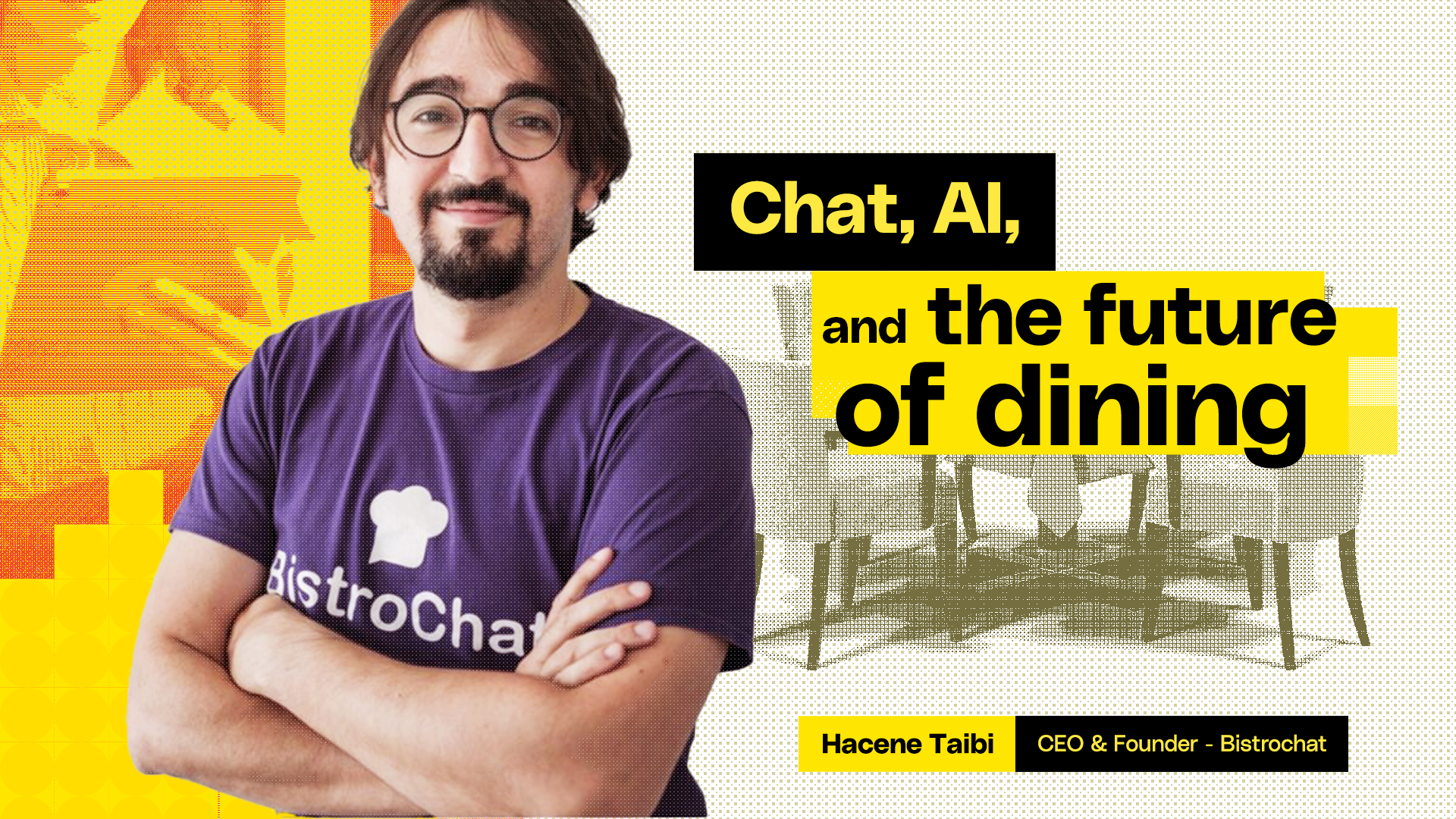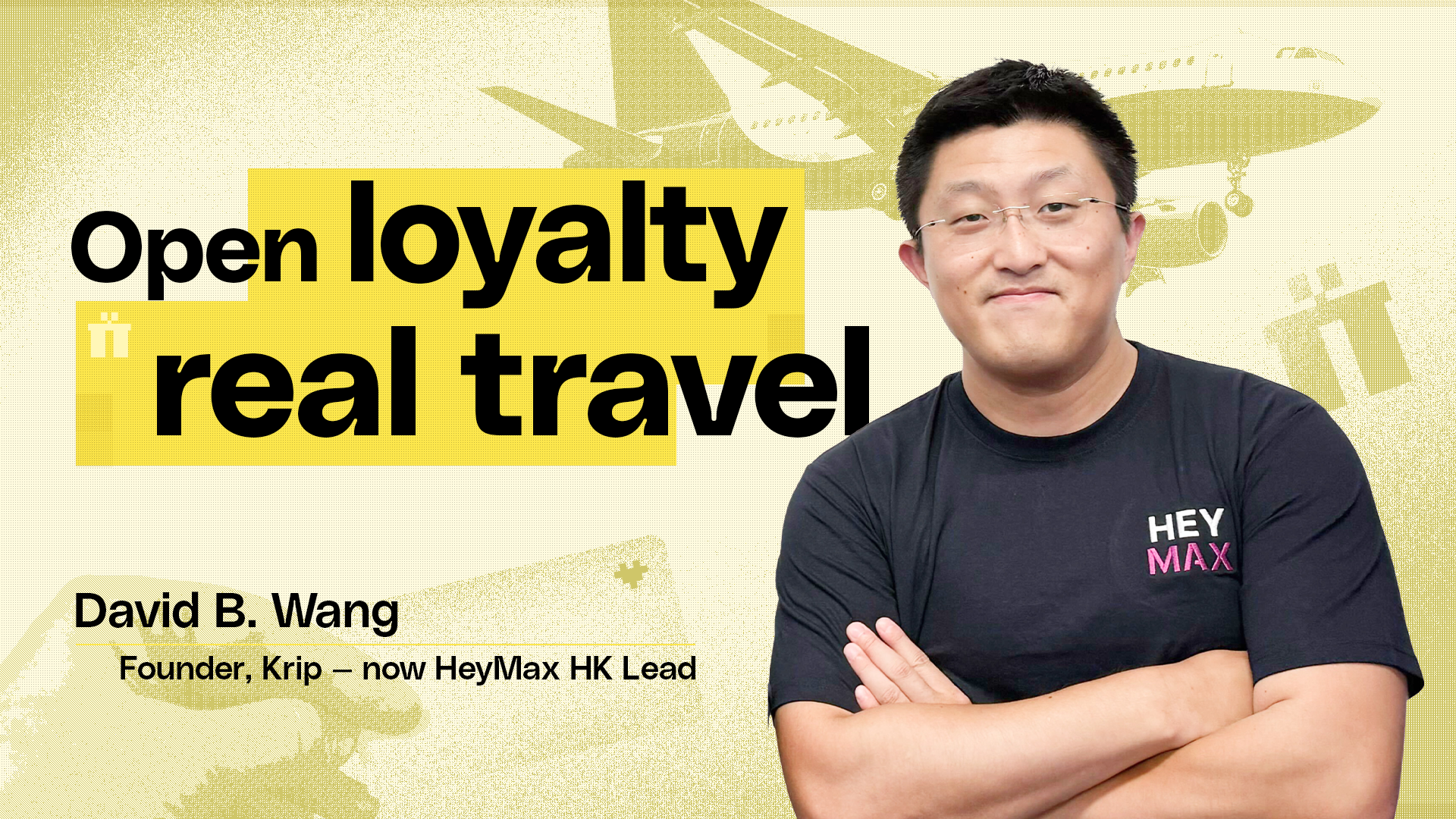
Hacene Taibi
From managing IT systems at the French Embassy in Beijing to the bustling kitchens of Hong Kong restaurants, Hacene Taibi has followed an unconventional path that led him to revolutionise how the hospitality industry manages customer relationships.
As co-founder and CEO of Bistrochat since 2018, the French-Algerian entrepreneur has built what he calls "the de facto CRM of the restaurant"—a platform that consolidates reservations from every chat channel imaginable, from WhatsApp and WeChat to Telegram and Instagram. What started as personal frustration with friends constantly messaging him about restaurant bookings has evolved into a comprehensive solution serving restaurant groups across Asia.
"20 hours that you like is much better than eight hours that you hate," Taibi reflects on his entrepreneurial journey. "It's not about the actual time you spend—it's the relative time, the feeling of that time passing by that matters."
Taibi's path to hospitality technology began with an early obsession with China. "Since I was a teen, I was focused on ending up in China," he explains. "I was passionate about the culture, the language, the history." This passion led him to secure a role as IT Director at the French Embassy in Beijing, where he managed IT networks across Austria, Czech Republic, and Slovakia for the French government.
His entrepreneurial instincts emerged during his embassy years when he co-founded a digital marketing agency in China, which was later acquired by Altima in 2014. But it was his experience co-owning a Beijing steakhouse called O'Steak that sparked the idea for Bistrochat. Tired of friends constantly messaging him personally about reservations—"we're going to be three tonight, no actually we're four, sorry I can't make it"—he recognised a universal problem in the making.
"I thought, this is something that's going to happen everywhere, not just in China," Taibi recalls. "Communication will move from email and phone calling to more chats."
After meeting his co-founders, who had independently started working on a similar solution, the team stayed in Phuket for what Taibi describes as an intense development period: "We lived in the same apartment, had one meal a day, worked seven days a week with no day off. We would just go out for dinner between 6 PM and 8 PM to enjoy the sunset, then go back to work."
This extreme dedication—what Taibi calls "sacrifice"—became central to Bistrochat's competitive strategy. While other startups entered the market with substantial funding, his team took a "classic challenger strategy," hyper-specialising on restaurant groups with 10-50 locations where they could solve specific, well-understood problems.
Bistrochat's platform goes far beyond simple booking management. It consolidates data across multiple channels, tracks customer preferences and spending patterns, and uses AI to handle routine communications—capabilities that were ahead of their time when launched but became suddenly mainstream after OpenAI's breakthrough.
"We could already achieve what we wanted before OpenAI released anything," Taibi notes. "But they evangelised the world in six months. Suddenly clients went from 'I don't trust AI answering' to 'Yeah, sure, let the AI answer it. I'm fed up answering.'"
👏 Dive deeper into this conversation and many others with innovative founders on the Unsensible Podcast, where we explore the future of technology, business, and investment:
The platform has revealed surprising insights about restaurant operations, from higher-than-expected no-show rates to significant demand for last-minute bookings within 30 minutes—data that has driven new feature development and helped restaurants optimise their operations.
Currently profitable and expanding across Singapore, Thailand, and Cambodia, Bistrochat is raising additional funding to accelerate growth across Asia. Taibi spends 50% of his time directly with restaurant owners, believing that the most valuable features come from observing unstated needs rather than just responding to explicit requests.
Looking ahead, Taibi sees a future where customers will simply tell Siri to "find me an Italian restaurant five miles around here with a table for four Friday at 6 PM"—and the AI will handle everything from search to booking to payment. For restaurants, this means adapting from search engine optimisation to what he calls "LLM optimisation"—ensuring they appear in AI-generated recommendations.
"My highest conviction is that whatever I think is going to happen is going to be wrong," Taibi admits with characteristic honesty. "But the code is definitely getting cheaper by the day. The value of the company will have to come from something else—partnerships, contracts, exchange of data, protocols."
With a background spanning computer science from EPITA, international business from Paris Dauphine University, and hands-on experience across government, digital marketing, and hospitality, Taibi brings a unique perspective to the intersection of technology and service. His journey from diplomatic IT management to restaurant technology reflects a broader truth about modern entrepreneurship: sometimes the best solutions come from those willing to dive deep into industries they genuinely love.
Don’t miss out!









